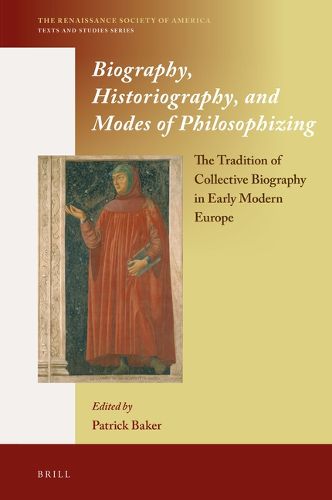Readings Newsletter
Become a Readings Member to make your shopping experience even easier.
Sign in or sign up for free!
You’re not far away from qualifying for FREE standard shipping within Australia
You’ve qualified for FREE standard shipping within Australia
The cart is loading…






By way of essays and a selection of primary sources in parallel text, Biography, Historiography, and Modes of Philosophizing provides an introduction to a vast, significant, but neglected corpus of early modern literature: collective biography. It focuses especially on the various related strands of political, philosophical, and intellectual and cultural biography as well as on the intersection between biography, historiography, and philosophy. Individual texts from the fifteenth to the eighteenth century are presented as examples of how the ancient collective biographical tradition - as represented above all by Plutarch, Suetonius, Diogenes Laertius, and Jerome - was received and transformed in the Renaissance and beyond in accordance with the needs of humanism, religious controversy, politics, and the development of modern philosophy and science.
$9.00 standard shipping within Australia
FREE standard shipping within Australia for orders over $100.00
Express & International shipping calculated at checkout
By way of essays and a selection of primary sources in parallel text, Biography, Historiography, and Modes of Philosophizing provides an introduction to a vast, significant, but neglected corpus of early modern literature: collective biography. It focuses especially on the various related strands of political, philosophical, and intellectual and cultural biography as well as on the intersection between biography, historiography, and philosophy. Individual texts from the fifteenth to the eighteenth century are presented as examples of how the ancient collective biographical tradition - as represented above all by Plutarch, Suetonius, Diogenes Laertius, and Jerome - was received and transformed in the Renaissance and beyond in accordance with the needs of humanism, religious controversy, politics, and the development of modern philosophy and science.